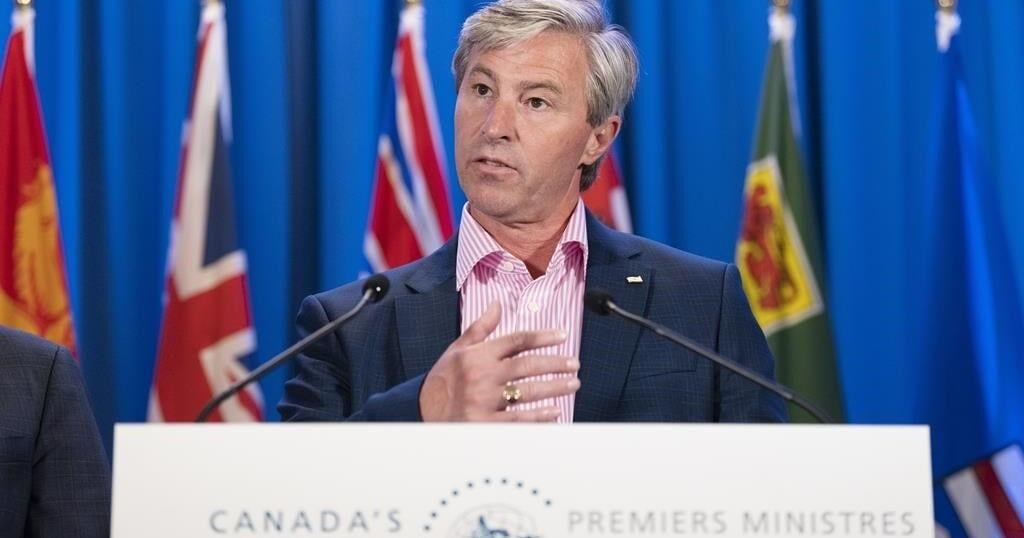HALIFAX – The working group examining support for Nova Scotia’s wine industry has lost its co-chair, who resigned this week calling talks with the provincial government an “enormous disappointment.”
Premier Tim Houston created the industry working group last spring after he paused a contentious subsidy program for two commercial wine bottlers in response to outcry from wine growers who said the aid would undercut their operations.
In a resignation letter sent to Houston on Monday, Karl Coutinho, board chair of Wine Growers Nova Scotia, said government proposals presented at a meeting last week left farmers feeling “discouraged, disheartened and disillusioned.”
Calling the meeting “an enormous disappointment,” Coutinho wrote, “After eight months of discussion the government presented the group with proposals that were incomplete and had the appearance of being written on the back of a napkin.”
He described senior bureaucrats as seeming “distant, unprepared and borderline hostile.”
In an interview Wednesday, Coutinho said the government is still pushing the idea of a subsidy for bottlers, something wine and grape growers are against. He said the move would effectively subsidize foreign wines, while undercutting the operations of wine growers and farmers in Nova Scotia.
“They put a proposal in front of us that basically flew in the face of everything we’ve been discussing … there really was no progress made,” said Coutinho. “If you are going to subsidize at all it should be on the grapes grown in this province.”
In a statement, the provincial Finance Department said its proposal was based on recommendations contained in an independent third-party report. It says the report concludes the farm industry and the commercial wine bottling industry “can coexist and benefit from government support.”
Department spokeswoman Monica MacLean said the government’s proposal included an additional $1.6 million in direct payments for farm wineries bringing the total support to $6.6 million. Commercial wine bottlers would get direct payments capped up to $1 million per year, per producer. Since there are two commercial wine bottlers, they would receive up to $2 million in a fiscal year.
But, in the letter to the premier, Coutinho accused the government of “selectively cherry picking” from the report while ignoring a recommendation that local subsidies should not go to producers who already benefit from products that have been subsidized in other jurisdictions.
Later on Wednesday the wine growers released the economic impact report, prepared by Acadia University business professors Donna Sears and Terrance Weatherbee.
Coutinho, who is also a co-owner of Avondale Sky Winery, said wineries are asking for a meeting with the premier to air their concerns over the working group. He added that he has communicated directly with Houston but has not heard back about a meeting.
He said Wine Growers Nova Scotia would ask the public to boycott the purchase of any product containing foreign content that has been subsidized by the province and would also cease providing Nova Scotia wine products for provincial government trade missions.
This report by The Canadian Press was first published Sept. 25, 2024.
